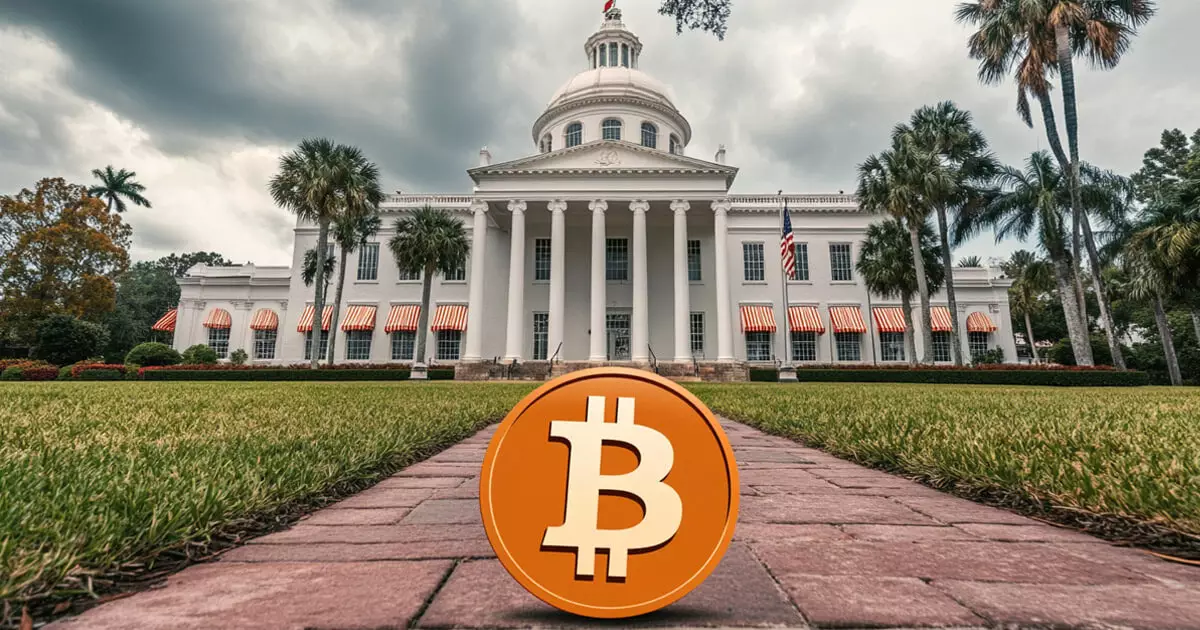In a pivotal era where traditional financial systems are increasingly scrutinized, Florida Senator Joe Gruters has emerged as a strong proponent for integrating Bitcoin (BTC) into the state’s fiscal strategies. With inflation rates rising and public confidence in conventional reserve assets wavering, Florida is positioning itself not just as a participant but as a leader in the cryptocurrency revolution. Gruters’ recent statements—drawing attention to his legislative framework that seeks to embed Bitcoin into the state’s financial infrastructure—illustrate a proactive approach toward fiscal autonomy and innovative economic policy.
The introduction of Bill S0550 signifies a transformative moment for the state, allowing the Chief Financial Officer to allocate a significant 10% of key fund assets to Bitcoin. This legislative step is not just about capitalizing on current trends; it’s about establishing a solid foundation for the future and reinforcing Florida’s image as a beacon of economic freedom in America. By enabling the State Board of Administration to manage Bitcoin investments, the bill fundamentally aligns with a larger vision: to empower Floridians and fortify their financial security against the backdrop of inflationary pressures and global economic instability.
A Shift in Political Paradigm
The integration of digital assets like Bitcoin is an evolving narrative in U.S. politics, and Gruters is quick to leverage this shift for Florida’s advantage. Referring to recent endorsements from figures like former President Donald Trump, Gruters argues that the state can set the tone for national policy surrounding digital currencies. By visualizing Bitcoin as a potential cornerstone of America’s financial future, he articulates a vision that transcends partisan divides, appealing to a broader base that values economic independence and personal financial agency.
Assuredly, this enthusiasm for blockchain innovation resonates widely, especially among constituents who prioritize freedom and autonomy in their financial choices. In Gruters’ perspective, Bitcoin is not merely an investment opportunity; it embodies the principles of liberty and individual empowerment—a narrative that aligns seamlessly with Florida’s emerging identity as a “pro-freedom state.” As more individuals seek refuge from restrictive financial regulations and high taxes, the state emerges as an attractive haven for economic vigor and liberty.
Engaging the Economic Refugees
Florida’s receptivity to innovations like Bitcoin also highlights its unique role during crises, such as the COVID-19 pandemic, when it became a destination for “economic refugees.” Individuals fed up with the stringent policies in their home states have flocked to Florida seeking a more favorable environment for living and doing business. This influx underscores the demand not only for personal freedom but also for financial innovation—both of which Gruters deems essential.
He emphasizes the opportunities presented by Bitcoin and other cryptocurrencies to tap into this wave of newcomers. For many, embracing these digital assets isn’t just about mitigating losses. It’s a reclamation of financial power, facilitating investments and economic fluidity within a growing demographic tired of overseer-centric policies. The urgency for such a transition has never been more apparent, and Gruters sees this as an inflection point for Florida to reaffirm its commitment to being a pioneer in both fiscal and digital realms.
The Ripple Effect on National Policy
The potential ramifications of Florida’s Bitcoin initiative extend beyond state borders; they signal a broader ideological shift that may influence national financial policies. Gruters has expressed confidence that Florida’s proactive stance will act as a template for other states, leading to a ripple effect in which they may follow suit. The narrative surrounding Bitcoin is set to gain traction, arguing for its importance within the national reserve structure, solidifying its status as a serious player in the 21st-century economy.
As more states observe the fiscal benefits of adopting policies conducive to cryptocurrency integration, a significant transformation in America’s economic landscape may be on the horizon. With declarations from influential leaders consolidating Bitcoin’s role in financial strategy, the nation could be on the verge of recognizing digital assets as viable components of fiscal responsibility at both state and federal levels.
Emphasizing fiscal sustainability, Gruters leverages the momentum to champion further enhancements across Florida’s economic policies, driving home the notion that adopting Bitcoin is a crucial step toward monetary resilience. The implications of these developments are profound, not merely for the financial sector but for the overarching political landscape itself.


















